Jyoti Pande Lavakare
It isn't just N R Narayana Murthy who feels that the Indian education system is decaying. When he articulated his disappointment at the declining quality of engineers graduating from the Indian Institutes of Technology earlier this month, he was only saying what the rest of us are thinking.
And if the IITs and the Indian Institutes of Management are presenting lower quality engineers and managers, can you imagine what must be happening at local-level colleges in tier-III towns and cities, the underbelly of modern, shining India?
...
Fixing India's broken education system
Image: Indian Institute of Management, Calcutta.Actually, the decline in quality is not just in our engineers and doctors - it's across the spectrum.
I've talked to CXOs in search of management trainees, engineers or programmers, academics looking to hire researchers, educators hiring teachers, demographers hiring interviewers - even serial entrepreneurs and venture capitalists who mentor start-up cubs beginning their first venture - and the story is unchanging.
What this anecdotal evidence proves is that despite India's advantageous youthful demographic, the quality of talent available for hire is dismal.
...
Fixing India's broken education system
Image: Top engineering colleges have become pre-MBA finishing schools.One of the reasons for this slide is that colleges have become more important as corporate job-placement centres rather than centres for learning - so their main role is to produce an assembly line of workers through mechanical rote learning rather than experientially develop young minds, encourage curiosity and independent thought.
"India's college system is broken - most engineers aren't good enough and many of those who are, don't want to use their repository of knowledge and work as engineers.
Top engineering colleges have become pre-MBA finishing schools. Young people are making inappropriate choices due to peer pressure and the liberal arts and pure sciences are being completely sidelined," says Naukri.com Founder Sanjeev Bikhchandani.
...
Fixing India's broken education system
Image: Education is the only route towards social betterment.Another reason is the democratisation of education. In countries, with a large disadvantaged demographic, education is the only route towards social betterment.
With more people getting access to education than before, this has presented several challenges, especially since the root goes deeper, into our crumbling school system.
The sheer numbers of coaching institutes and private tutors that have spawned in the last decade prove this.
Evidently, if our schools were doing what they should be – providing education and life-skills in a holistic manner - this giant ecosystem of tutoring that churns out youngsters crammed with facts but no real knowledge wouldn't exist.
...
Fixing India's broken education system
Image: Education in liberal arts or the pure sciences is seen as risky.But by taking short-cuts to get to their single goal of admissions to colleges to land that aspirational job, these tutoring institutes have done the country a disservice, in the bigger picture, perpetuating mediocrity by creating an army of literate, uninspired youth.
"Rapid democratisation of education has led to our existing screening processes and exam barriers failing us. But overall this is a good challenge to have," says Sonalde Desai, senior fellow, National Council for Applied Economic Research.
Today, an education in liberal arts or the pure sciences - or any degree that doesn't guarantee a job - is seen as a "risk" education because one doesn't know what the child will professionally do or become.
...
Fixing India's broken education system
Image: Some view education purely as a financial investment.This makes it unattractive to the risk-averse middle class, especially those who view education purely as a financial investment.
"But I believe some of our academically brightest emerge from the middle class," says Bikhchandani, and are compelled to take up engineering, or management even if they aren't truly drawn to it. That's why such schools are spawning.
"But unless India's only aim is to be the back office to the world, with its BPOs, KPOs and other ant factories stoking the country's GDP fires, it needs to seriously revamp its educational system. There are several other reasons for this failure.
...
Fixing India's broken education system
Image: The education system can either be repaired or rebuilt from scratch."But there are only two ways of solving this problem. One, take what's broken and repair it, and second, discard the broken and build anew.
Aspire Human Capital Management, founded by Amit Bhatia and co-promoted by 28 industry CEOs as investors, has taken the first route.
It accepts all the ills of the current system as a given, and then proceeds to repair what it can by infiltrating it and creating change from within.
In partnership with three international universities, Aspire customises updated curricula that can be embedded into teaching institutions in smaller towns like Manav Rachna International University, Faridabad, Lovely Professional University, Phagwara, and Chettinad College of Engineering and Technology, Karur, to upgrade their quality of academic programmes, overcome regional and language barriers and attempt to bring them up to speed with international standards.
...
Fixing India's broken education system
Image: Aspire's products help graduates from small towns with big dreams.Aspire's products help graduates from small towns with big dreams, but who lack basic employability skills, by coaching them in life and workplace skills - from spoken English, corporate etiquette and conduct, to more employable hard skills.
It currently has 30,000 students in training across 50 institutions in 20 cities, 12 states - and an average annual revenue growth of 100 per cent since it started in 2007, says Bhatia.
For English language skills, Aspire has tied up with the University of Cambridge, for Computer Science with iCarnegie and for business management with a unit of Harvard University.
...
Fixing India's broken education system
Image: Aspire also welcomes real-time inputs from corporates, potential employers.In addition, Bhatia welcomes real-time inputs from corporates, potential employers. Aspire also participates in the pedagogy of the participating institution. Through ongoing instructor support and mentoring, it helps in the repair work students require to become more employable - tutoring the tutors.
And going by Aspire's revenue growth, it's clear that colleges recognise that they need help and are happy to pay Bhatia for it.
Meanwhile, Bikhchandani is attempting to solve this "biggest unsolved problem of the country," not by repairing, but by building afresh.
...
Fixing India's broken education system
Image: Ashoka University aims to attract academic excellence.Ashoka University, promoted by him along with three engineer-entrepreneur problem solvers - including ChrysCapital Founder Ashish Dhawan - will be a multi-disciplinary university, focusing on liberal arts and pure sciences in collaboration with blue-chip foreign universities.
The plan is to staff it with top-notch local and international faculty and attract academic excellence. But unlike other new colleges coming up, this will have no engineering school, since the whole point is to make pure and social sciences and the liberal arts as aspirational.
...
Fixing India's broken education system
Image: Ashoka University will have 4,000 students.Ashoka will cost Rs 300 crore (Rs 3 billion) to build and will have a 270-strong faculty for 4,000 students. But the best part it that it won't be a privately owned, for-profit venture like the others, but a truly philanthropic project.
"It is a community project and we want everyone who shares our vision to feel ownership - that's why our efforts at fund-raising have been so broad-based," says Bikhchandani.
If this team of savvy entrepreneurs pull this venture off and are seriously able to walk the talk, they will have done the nation a huge favour.
As for jobs?
Bikhchandani is confident that placements will follow (and surely, he should know.)

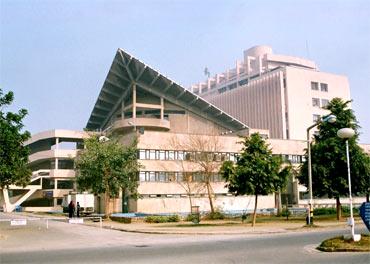
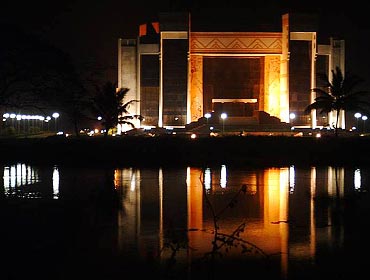
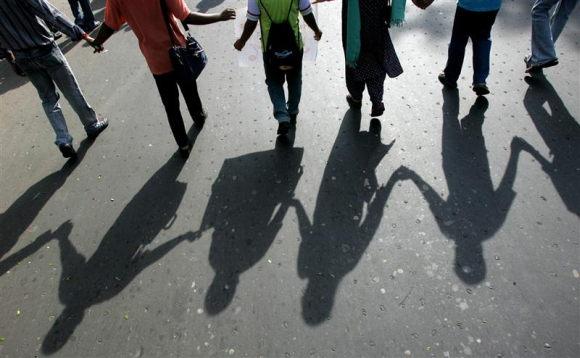

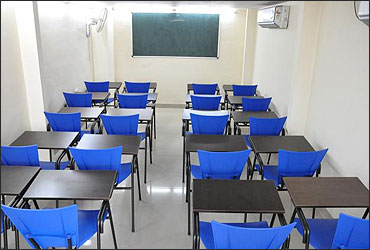




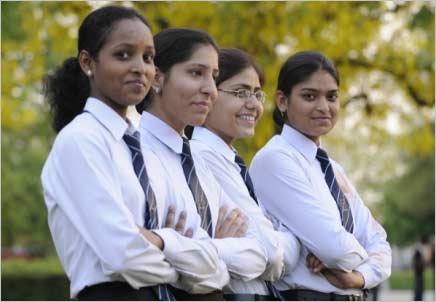


article